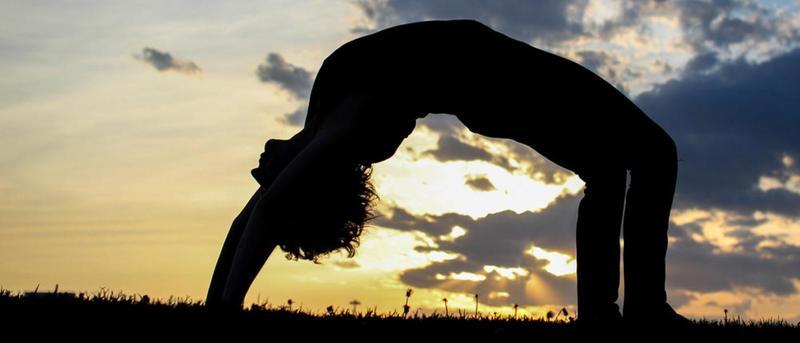Forget Painkillers, Yoga Can Cure Aches and Pains
Forget Painkillers, Yoga Can Cure Aches and Pains
Yoga and acupuncture really can relieve pain, according to new research.
Some of the most popular complementary health approaches - including yoga, tai chi and acupuncture - appear to be effective at managing painful conditions.
Scientists reviewed clinical trials in the US to come to their conclusions - which could help millions of people whose pain may not be fully relieved by conventional medications.
Until now, a lack of evidence around complementary approaches has meant health professionals have not been able to recommend them.
Researchers say the review will help doctors, who frequently see patients with chronic pain, be able to inform patients on which treatments will best help them manage their symptoms.
The review was conducted by a group of scientists from the National Centre for Complementary and Integrative Health (NCCIH) at the National Institutes of Health.
Lead author Dr Richard Nahin, of the NCCIH, said: ‘For many Americans who suffer from chronic pain, medications may not completely relieve pain and can produce unwanted side effects.
‘As a result, many people may turn to non-drug approaches to help manage their pain.
‘Our goal for this study was to provide relevant, high-quality information for primary care providers and for patients who suffer from chronic pain.’
The researchers reviewed 105 controlled trials, from the past 50 years, that were relevant to patients with pain conditions.
They found none of the clinical trials reported significant side-effects.
The review focused on US-based trial results on seven approaches used for one or more of five painful conditions.
These included back pain, osteoarthritis, neck pain, fibromyalgia, and severe headaches and migraine.
The team found acupuncture and yoga showed ‘promise’ for treating back pain.
Acupuncture and tai chi was promising for osteoarthritis of the knee while massage therapy was effective at treating neck pain in the short-term.
Relaxation techniques could relieve pain from severe headaches and migraine, they discovered.
Though the evidence was weaker, the researchers also found that massage therapy, spinal manipulation, and osteopathic manipulation may provide ‘some help’ for back pain.
Relaxation approaches and tai chi might help people with fibromyalgia, they added.
Dr David Shurtleff, deputy director of NCCIH, added: ‘These data can equip providers and patients with the information they need to have informed conversations regarding non-drug approaches for treatment of specific pain conditions.
‘It’s important that continued research explore how these approaches actually work and whether these findings apply broadly in diverse clinical settings and patient populations.’
Complementary Therapies ‘Can Relieve Pain’
The review focused on US-based trial results on seven approaches used for one or more of five painful conditions.
These included back pain, osteoarthritis, neck pain, fibromyalgia, and severe headaches and migraine.
The team from the National Centre for Complementary and Integrative Health (NCCIH) found acupuncture and yoga showed ‘promise’ for treating back pain.
Acupuncture and tai chi was promising for osteoarthritis of the knee while massage therapy was effective at treating neck pain in the short-term.
Relaxation techniques could relieve pain from severe headaches and migraine, they discovered.
Though the evidence was weaker, the researchers also found that massage therapy, spinal manipulation, and osteopathic manipulation may provide ‘some help’ for back pain.
Relaxation approaches and tai chi might help people with fibromyalgia, they added.
By MADLEN DAVIES FOR MAILONLINE
